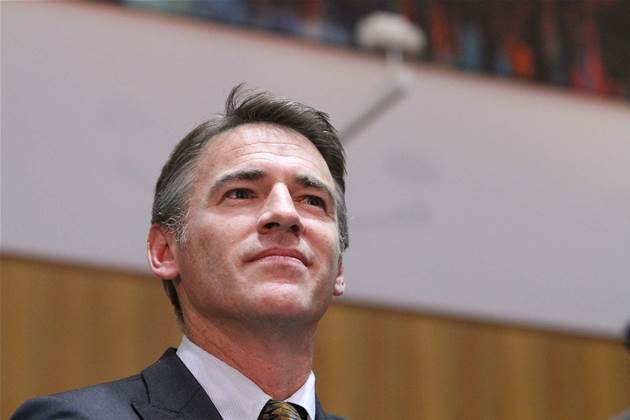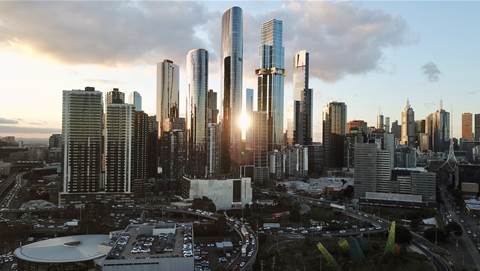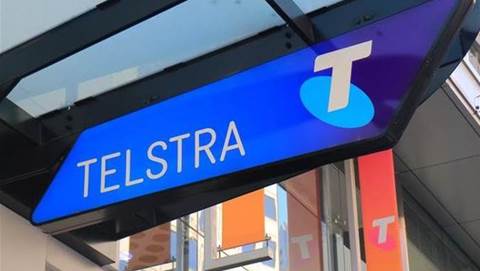The joint Parliamentary committee overseeing progress of the National Broadband Network has called on New Zealand politicians and telcos to provide evidence on the country's equivalent fibre rollout next week.

Committee members, including chairman and independent MP Rob Oakeshott, will attend hearings in Auckland and Wellington between Monday and Wednesday next week.
A schedule is undergoing finalisation, but it is understood the committee will seek to hear from the likes of Vodafone New Zealand, politicians and Crown Fibre Holdings, the government corporation established to oversee New Zealand's $NZ1.5 billion ($A1.18 billion) fibre-to-the-premises rollout to 75 percent of buildings.
The hearings come nearly a year after Oakeshott indicated an interest in evidence from across the Tasman, aimed at comparing the regulatory jurisdictions as well as competing models of fibre rollout methods — whether to a node, the premises or "other alternatives".
"I'm wanting to, from my perspective, do that direct comparison on what they did, why they did it and do a direct comparison to what we're doing," Oakeshott told iTnews this week.
He said he wished to hear "from the horse's mouth — see what's true and what's not".
"My understanding — and a lot of it is to do with the geography of New Zealand to the geography of Australia — is that New Zealand is potentially going to get greater bang for their buck on fibre-to-the-premises with less of a public sector spend," he said.
The hearings are scheduled as part of an annual exchange of political committees between the Australian and New Zealand governments, with a focus on sharing and harmonising specific agendas. Last year's House and Senate committee visits comprised those on Aboriginal and Torres Strait Islander Affairs, and Rural Affairs and Transport.
The New Zealand experience could serve to bolster ongoing criticisms of Australia's NBN by the coalition, which has used the smaller country on multiple occasions as an example of a more prudent rollout.
Low take-up rates in some New Zealand rollout areas would similarly prove beneficial to the coalition's criticisms, serving to show a limited appetite for faster broadband over current technologies. Those rates have been partially blamed on a lack of residential fibre plans from the country's major carriers.
However, shadow communications minister Malcolm Turnbull — a member of the NBN committee — won't attend the hearings next week. A spokesman said he had already received "extensive briefings" around the New Zealand experience.
Fellow Liberal MP and former Optus executive, Paul Fletcher, told iTnews he hoped to use the hearings to establish the general principles behind New Zealand's fibre plan, which he praised for more thorough policy-making processes and smarter negotiating tactics in bringing former incumbent Telecom NZ to join the project.
"The New Zealand Government has taken a much more careful approach with taxpayer's money and they've been quite clever in the way they've leveraged private sector investment," he said.
"Unfortunately what we've seen in Australia under the NBN is an unbelievably profligate approach.
"I think there's a lot we can learn from what's being done in New Zealand, not so much I think in terms of the mechanics of city versus country or specific business structures, but more the general principles about how do you get best possible value for any taxpayer money put in and how do you best leverage the skills and capacities of the private sector."
Unlike the Australian rollout, where NBN Co has retained network design but subcontracted construction, the New Zealand rollout hinges on private telcos running their own construction process according to defined standards in 33 separate regions.
Chorus, the former infrastructure arm of Telecom NZ prior to its separation, has retained contracts to roll out fibre in the vast majority of locations.
But one aspect that has led the coalition to favour New Zealand's experience — an original pushing for a fibre-to-the-node rollout — may not become a core line of questioning for Liberal politicians next week.
"There are obviously some circumstances that are specific to New Zealand ... I think what is going to be more useful is to try and draw out the general principles about the policy-making approach they've taken and the fact, for example, that Crown Fibre Holdings is a pretty small organisation and what it largely does is contract with private sector companies," Fletcher said.
Oakeshott said the hearings could help clear up some of the ongoing examples of New Zealand's potential broadband benefits.


















.png&h=141&w=208&c=1&s=1)

